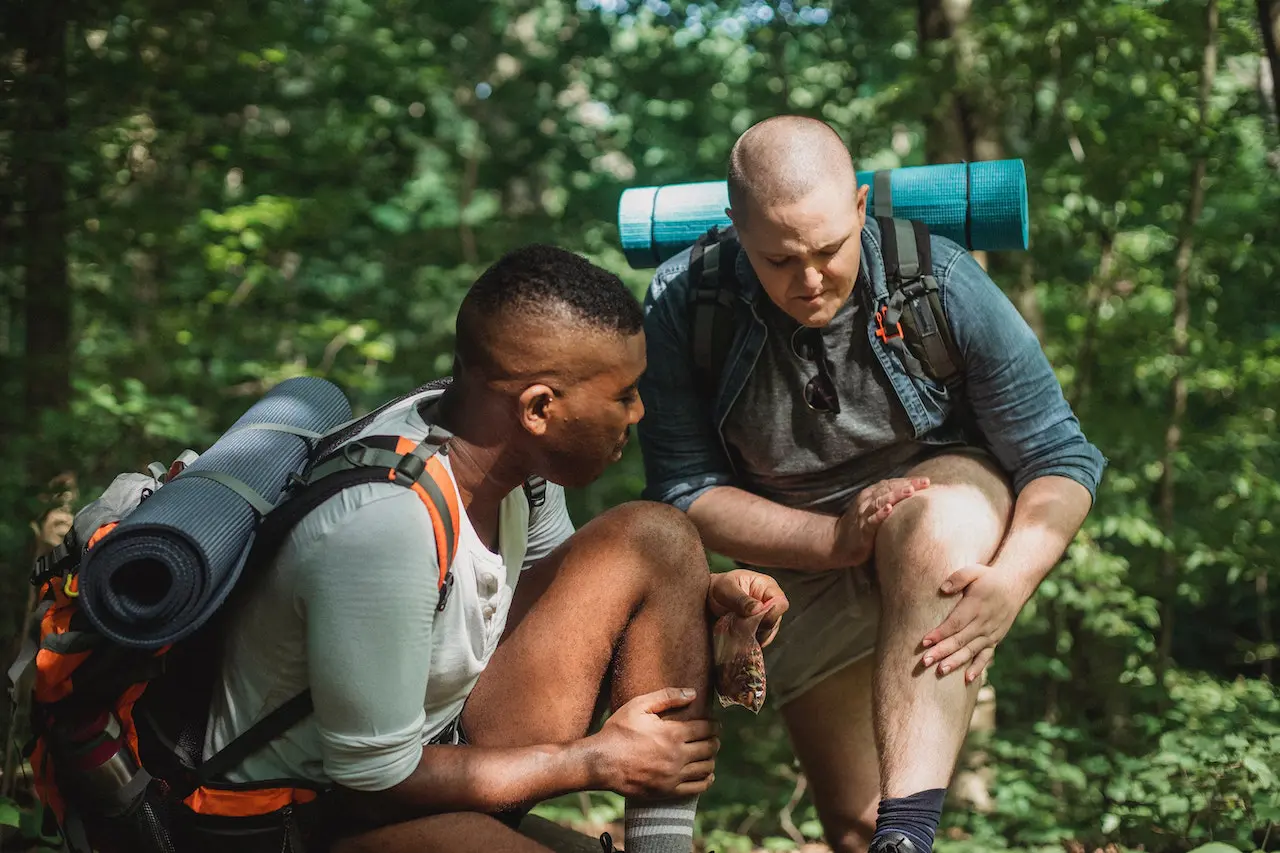Hiking is an excellent way to stay active and enjoy nature, but knee pain can put a damper on the experience. Knee pain while hiking is a common issue that many hikers experience, and it can be caused by various factors. In this article, we’ll explore some of the potential causes of knee pain when hiking and discuss some remedies that can help alleviate it.
Hiking is Physically Demanding
Hiking is an incredibly rewarding activity that offers a chance to explore nature and get some exercise. However, it’s important to keep in mind that hiking can also be physically demanding and put a lot of stress on certain parts of your body, particularly your knees. When hiking, you’re often walking on uneven terrain, which requires your body to constantly adjust in order to maintain balance.
This can be especially challenging when going up or down steep hills, which require a great deal of effort from your leg muscles and can cause significant strain on your knees. Additionally, carrying a backpack while hiking can add even more weight and stress to your knees, making it important to choose a backpack that fits properly and distributes the weight evenly.
All of these factors can contribute to knee pain and discomfort while hiking, which is why it’s important to be prepared and take steps to prevent injury.
Get an Appointment
Complete The Form Below And We’ll Get Back To You Immediately.
Exploring the Potential Causes of Knee Pain When Hiking
There are several potential causes of knee pain when hiking. One common cause is overuse injury, which occurs when you put too much stress on your knees without allowing them enough time to rest and recover. Other potential causes of knee pain when hiking include:
Muscle imbalances
If the muscles in your legs aren't properly balanced, it can put extra stress on your knees. For example, if your quadriceps are stronger than your hamstrings, it can cause your kneecap to pull to one side, resulting in pain.
Arthritis
Arthritis is a common condition that can affect the knees, and it can be exacerbated by the physical demands of hiking.
Meniscus tears
The menisci are the cartilage pads in your knees that act as shock absorbers. If you tear your meniscus, it can cause pain and inflammation.
Remedies for Knee Pain When Hiking
If you’re experiencing knee pain when hiking, there are several remedies that can help alleviate it. Here are a few things you can try:
Rest and ice
If your knee pain is due to overuse, the best thing you can do is rest and apply ice to reduce inflammation.
Stretching and strengthening exercises
Stretching and strengthening exercises can help improve the strength and flexibility of your leg muscles, which can alleviate knee pain.
Proper footwear
Wearing proper hiking boots or shoes can help provide support and cushioning for your feet and knees.
Have You Tried the Tips Above with No Luck? You Might Be Facing a Knee Injury
Stem Cell Therapy is the Next Generation of Non-Invasive Treatment for Joint Injuries
If you’ve tried the above remedies and are still experiencing knee pain when hiking, stem cell therapy may be an option for you. Stem cell therapy involves using your body’s own stem cells to promote healing and reduce inflammation. This innovative treatment can help alleviate knee pain and improve knee function.
At GIOSTAR Chicago, we understand how knee pain can limit your ability to enjoy your active lifestyle. That’s why we offer cutting-edge stem cell therapy treatments that can help you get back to doing the things you love without knee pain. Our team of experts will work with you to develop a personalized treatment plan that addresses your unique needs and concerns.
Our stem cell therapy treatments are safe, effective, and minimally invasive. We use state-of-the-art technology and techniques to ensure that your treatment is as comfortable and successful as possible. Our goal is to help you achieve long-lasting relief from knee pain so that you can get back to doing the things you love.
Don’t let knee pain hold you back any longer. Contact GIOSTAR today to schedule your consultation and learn more about our stem cell therapy treatments for knee pain.
Take Aways
Knee pain can be a significant obstacle for hiking enthusiasts. While it can be frustrating and painful, there are several ways to manage and alleviate the symptoms to ensure you can still enjoy the great outdoors.
Firstly, it’s essential to understand the physical demands of hiking, as well as the potential causes of knee pain. It’s worth noting that knee pain often occurs due to a lack of strength in the muscles that support the knee joint. Therefore, it may be beneficial to engage in exercises that strengthen the leg muscles, such as squats and lunges. Another way to alleviate knee pain when hiking is to wear proper footwear. Finally, in more severe cases, you may want to consider more advanced treatments, such as stem cell therapy. You can contact GIOSTAR Chicago to learn more about how it works.
Knee pain doesn’t have to keep you from enjoying the great outdoors. By taking the necessary steps to manage your symptoms, you can continue to hike and explore the beauty of nature.
About GIOSTAR Chicago:
GIOSTAR Chicago is dedicated to developing the most advanced stem cell-based technologies and providing the best regenerative medicine for people who want to enjoy a healthy and active lifestyle.


